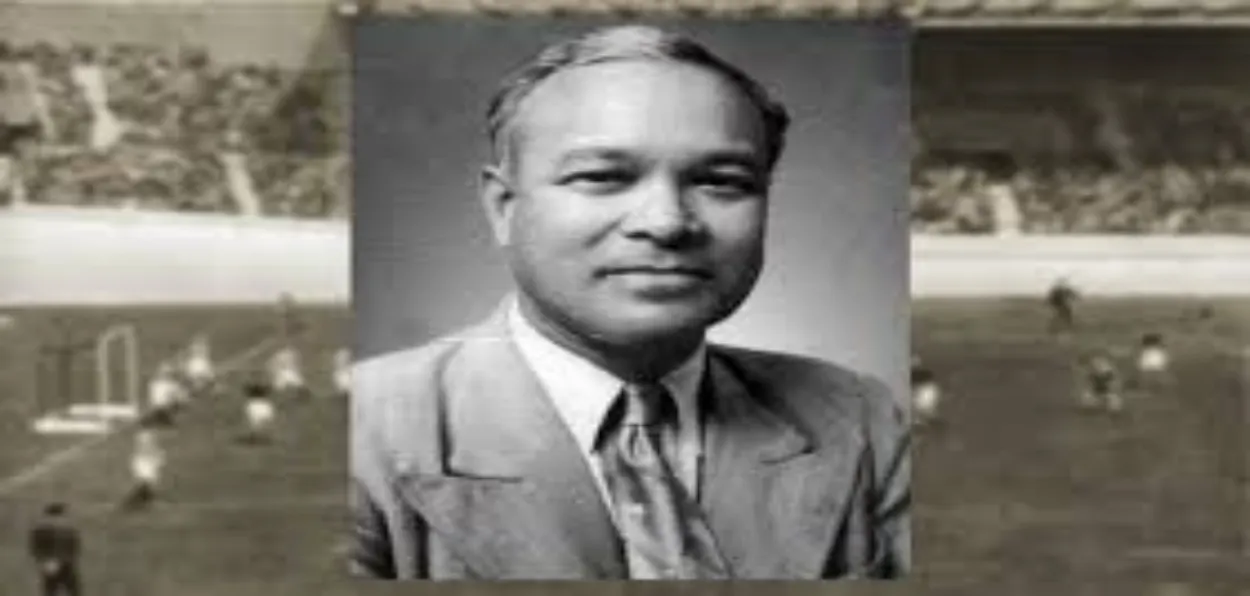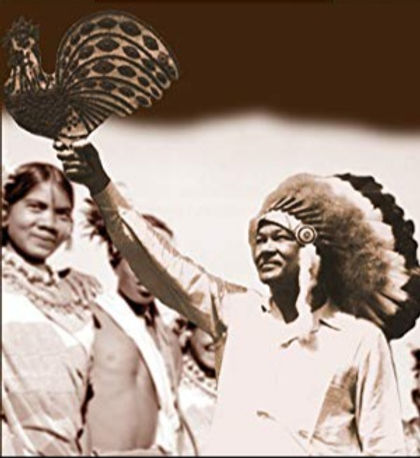
Saquib Salim
Beginning with victory in the Amsterdam Olympics 1928, India dominated International Hockey for three decades. Most Indians know about the most famous goal scorer of this invincible team Dhyan Chand, but they may not remember the man behind cobbling the team and organising its entry into the Olympics at a time when India was a colony of the British and not an independent nation.
He was Jaipal Singh Munda, an Adivasi (Scheduled Tribes person) and the captain of the Indian team. Jaipal is also known as the Adivasi leader who was a member of the constituent assembly.
Born in 1903 in a tribal Munda family of Bihar, Jaipal studied at St. Paul’s School in Ranchi and moved to Oxford for further studies. One of the earliest Indian tribesmen to study abroad, Jaipal held the posts of secretary and president of ‘Debating Society’ at St. John’s College, Oxford.
At the University, he represented the football and hockey teams. Later on, he gathered the Indian hockey players residing in Europe and organized the first Indian Hockey team to tour Belgium.
Like other Indians of his time, Jaipal was also preparing for the coveted Indian Civil Services (ICS). He was selected but his training coincided with the 1928 Olympics. He chose to be the captain of the Indian Hockey Team at the Olympics. India bagged the Gold Medal but Jaipal did not play the finals.
Without completing ICS, Jaipal was not eligible for a job with the British government but his talent was recognized by the princely state of Bikaner. He joined the state as revenue minister. Meanwhile, he married Tara Majumdar, granddaughter of W.C Bonnerjee.
Jaipal could not remain aloof from the social, political, and economic issues of Adivasis for long. In 1938, he left his job at Bikaner and moved back to Chotanagpur Plateau in Bihar.
He became the President of an organization called Adibasi Sabha. In his first presidential address in 1939, attended by about 100,000 people, he listed a separate province for his community as a demand for Adibasi Sabha. He said Adibasis needed a separate province from Bihar just like Bengali-speaking and Oriya-speaking people had been asking for.
Jaipal in Behar Herald wrote that Sabha achieved a major success in the Municipal elections as a shock to the Bihari ministry. A point that he made again and again, right from his first address to Sabha, was about the Bihar Government making a statement, terming Chota Nagpur as a deficit area. He asked if that was real, then it did not separate it. Jaipal came to Chotanagpur in 1939 and took up the movement against the exploitation of ‘his people’ by the ‘Bihar Ministry’.

Jaispal Singh Munda in the traditional dress of Chotanagpur
What we know as Jharkhand today can trace its origin to Jaipal’s demand. He forged alliances with different political groups as well as industrial houses to stop what he termed as the ‘Biharisation’ of the Chotanagpur Plateau and Santal Parganas.
He forged an alliance with Subhas who was opposing Congress-led workers’ strike at Jamshedpur Steel Plant. Out of 1400 workers, 900 joined the strike and the remaining were provided security by Bose. Congress called him an opportunist but for him boycott of the strike was a bargaining tool.
Jaipal said, “Since we will not be helping the strike, employers should stop the inflow of labourers from the outside. Biharisation of Tata Nagar should be stopped”
For Jaipal, it was more important to stop the influx of labourers and other workforce from outside Chotanagpur, North Bihar mostly. It was a perfect statement that adivasis were on the side of the employer and would not join the strike so adivasis should be preferred over the Biharis.
Later, during the Second World War, he cooperated with the British to bargain for concessions. In the mid-1940s he tried to forge an alliance with the Muslim League, which eventually failed. For him, the Adivasi question was foremost and every bargaining had to be done around that.
Jaipal accused the Bihar Ministry led by Congress of using violence against the Adibasi Sabha members. In a letter to S.P Mukherjee of Hindu Mahasabha, he expressed fear that the Bihar Ministry wanted to destroy anything or everything that belonged to the aboriginal culture. Jaipal was critical to the Bihar Congress but believed in the Indian Freedom Struggle. While addressing the Adibasi Sabha gathering at Ranchi in 1948, he said that he always believed in the movement led by Indian National Congress but Bihar Congress never let Sabha get accommodated in the INC.
Jaipal later joined the Constituent Assembly and advocated the rights of the Adivasis. He mostly disagreed with Ambedkar and Congress leadership over the tribal question. He claimed that only Adivasis were the inhabitants of this country and all others were outsiders and like the British, Hindus also would have to leave the country soon. Jaipal vociferously argued against the use of the term ‘Scheduled Tribes’ as it was going to include only the backward tribes and not all the tribes. Also, this category was not going to be based upon the claim of the people as sons of the soil.
ALSO READ: Everyone will have to adopt AI as it seeks to improve life quality
Jaipal’s arguments won Scheduled Tribes certain rights in the Constitution and later on his movement resulted in the formation of a separate state of Jharkhand.
